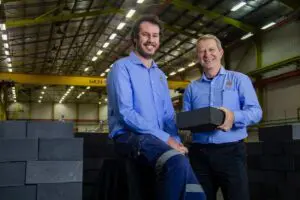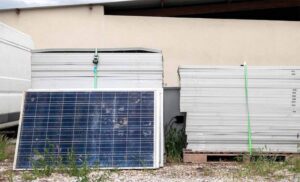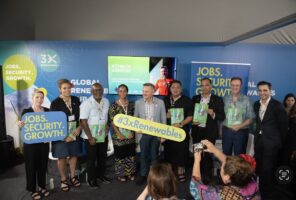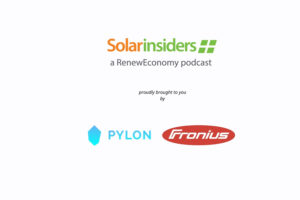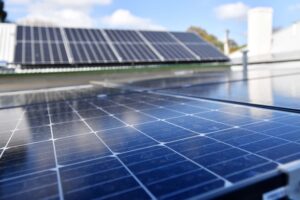The defining characteristic of the Newman government’s environmental policy seems to be a Great Leap Backwards: an old-fashioned determination not to let environmental concerns get in the way of expanding the mining industry in general and the coal industry in particular. It really is a coal-ition government.
There were early signs in such penny-pinching measures asscrapping the public funding of the Environmental Defenders’ Office, which provides legal advice to individuals and community groups when they are resisting inappropriate developments.
Wriggling out of the previous government’s commitment tosupport large scale solar energy projects, then cutting the feed-in tariff so that householders who install solar panels in future will actually be subsidising electricity retailers, were further signs of a mindset harking back to the fossil-fuel age.
The real worry is the approach to environmental assessment more generally. No objective observer could possibly conclude that industry is currently over-regulated in Queensland.
It has recently experienced specific environmental problems:devastation of fishing in the Gladstone area, methane coming to the surface near coal-seam gas operations. More generally, four national state-of-the-environment reports have documented the steady and systematic worsening of all the major environmental indicators, including the loss of our unique biological diversity.
Yet the first time Mr Newman met with his fellow coalition Premiers, he joined them in calling for the elimination of “green tape”: what they perceive to be needless restrictions on business interests who want to ignore environmental harm to maximise profits.
Then Newman attacked the federal environment minister, claiming that he was causing needless delays to resource projects in Queensland, when he delayed the massive Alpha coal mine because of the inadequacies in the State-based environmental impact assessment.
As I was preparing this piece, the government announceddramatic cuts to the public service in the natural resources area, claiming that “over-regulation” was holding back development and costing the tax-payer money to no good end.
The public face of this change was the rapid passage in July of the Environmental Protection (Greentape Reduction) and Other Legislation Amendments Bill. The Minister said the emphasis is on “streamlining and clarifying assessment and approval processes”, promising “benefits and savings” for “all regulated activities”.
The government claimed there would be no erosion of environmental standards. To be fair, standards in Queensland were not particularly high when the government changed.
Under the previous Bligh government, the environment department generally seemed to see its job as ensuring that no environmental concerns impeded a profitable proposal.
When I appeared as an expert witness in one case concerning a proposed huge export coal mine, the agency actually intervened on the side of the proponent to support its argument that the court should ignore the impact of the proposal on global climate change. When I chaired a public meeting discussing coal-seam-gas extraction, the head of the agency was jeered by the audience when he assured them that it could be trusted to apply best-practice regulation.
As I was drafting these comments, the new government released its interim planning approach. It said
“the purpose of these new guidelines is to ensure that economic growth is facilitated by local and state plans, and not adversely impacted by planning processes … The State interests in economic growth include promoting agriculture, tourism, the State’s mineral and extractive resources industries, and construction activities.”
That is an explicit statement. The government wants to promote economic growth, including the extractive resource industries, and wants to “ensure” that growth is “not adversely impacted by planning processes” – which include environmental assessment processes. Accordingly, the government aims to remove the Wild Rivers protection from Cape Yorkwithin the next year. There is even talk of removing this protection from the Lake Eyre Basin, a move that would be opposed by local graziers.
The bottom line is, as the Minister put it, to streamline “assessment and approval”, an expression that reflects an honest description of the government’s approach to major proposals: they will be superficially assessed and then approved.
This week there was a call for the new government to renege on its express undertaking before the election to maintain the State’s opposition to mining and exporting uranium. Mr Newman’s pre-election commitment not to support uranium mining was reiterated in Parliament in July. An industry spokesperson claimed that Queensland is missing out on huge opportunities by this stance. Brendan O’Hara, head of WA company Summit Resources, said Queensland is missing out on “millions of dollars” worth of investment and “could miss the boat” if it doesn’t quickly change its policy. The anti-uranium stance is so clearly out of step with the government’s ideology that some cynical observers expect a backflip. Watch this space!
With continuing pressure on the Commonwealth government to step back from its role of enforcing the Environmental Protection and Biodiversity Conservation Act, the statements and actions of the new Queensland government are a reminder of the need for a national overview.
Without Commonwealth intervention in the past, we would have seen the Franklin River dammed, Fraser Island mined, drilling for oil and gas on the Great Barrier Reef, and even more grazing in the Victorian Alps.
Originally written by Ian Lowe, Emeritus Professor, school of Science at Griffith University. This article was published with permission


